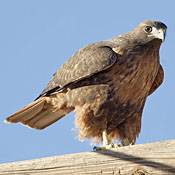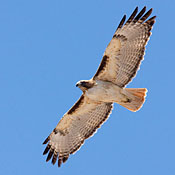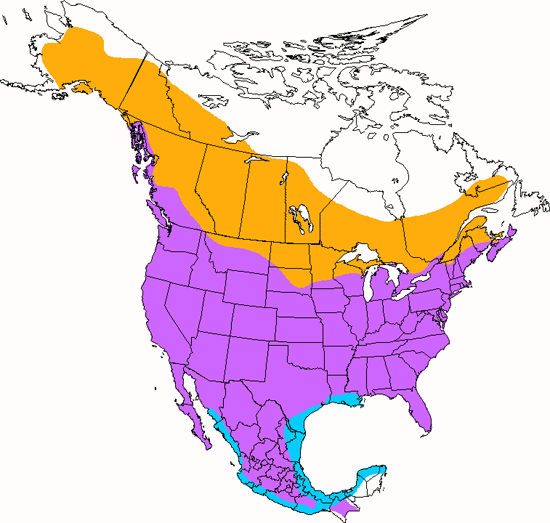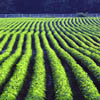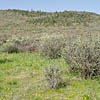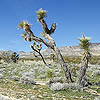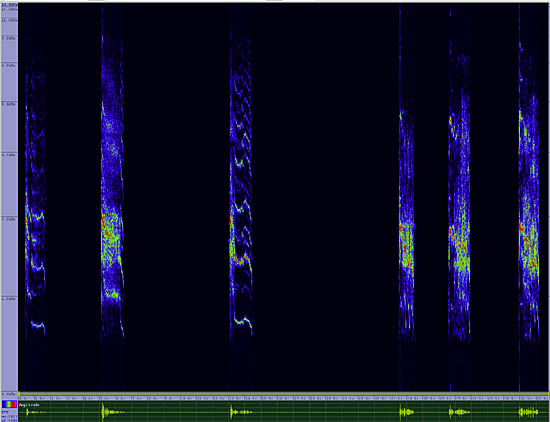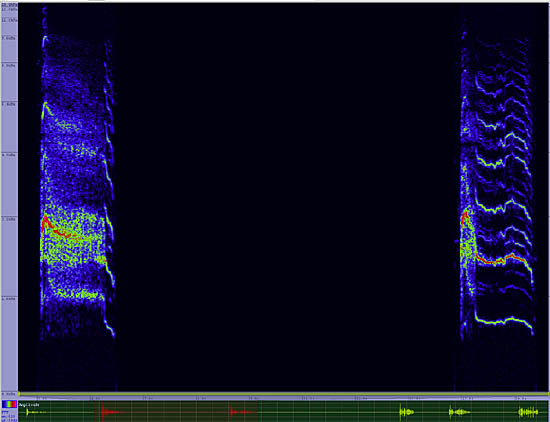Red-tailed Hawk
Buteo jamaicensis

Hawk Like
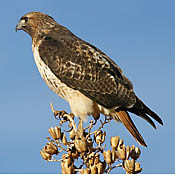
Length: 19 in. (48 cm )
One of the most common and obvious hawks in North America, Red-tailed Hawks are found in open habitat, fields, and desert areas with a few trees. This species eats small mammals, frogs, fish and occasionally rotting animals. Its huge nest is made of sticks and twigs and located high in an isolated tree. Individuals show tremendous variation in body color from black to brown and pale, but the tail of adults is almost always reddish.
The four-digit banding code is RTHA.
Bibliographic details:
- Article: Red-tailed Hawk
- Author(s): Dr. Biology
- Publisher: Arizona State University School of Life Sciences Ask A Biologist
- Site name: ASU - Ask A Biologist
- Date published:
- Date accessed:
- Link: https://askabiologist.asu.edu/activities/bird/red-tailed-hawk
APA Style
Dr. Biology. (). Red-tailed Hawk. ASU - Ask A Biologist. Retrieved from https://askabiologist.asu.edu/activities/bird/red-tailed-hawk
Chicago Manual of Style
Dr. Biology. "Red-tailed Hawk". ASU - Ask A Biologist. . https://askabiologist.asu.edu/activities/bird/red-tailed-hawk
Dr. Biology. "Red-tailed Hawk". ASU - Ask A Biologist. . ASU - Ask A Biologist, Web. https://askabiologist.asu.edu/activities/bird/red-tailed-hawk
MLA 2017 Style
Be Part of
Ask A Biologist
By volunteering, or simply sending us feedback on the site. Scientists, teachers, writers, illustrators, and translators are all important to the program. If you are interested in helping with the website we have a Volunteers page to get the process started.

